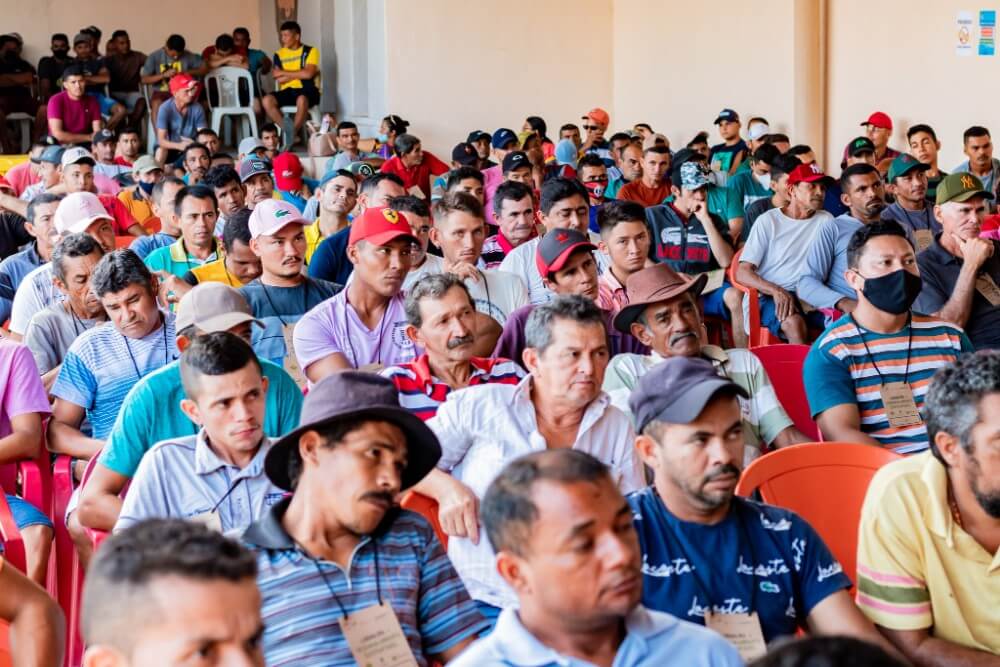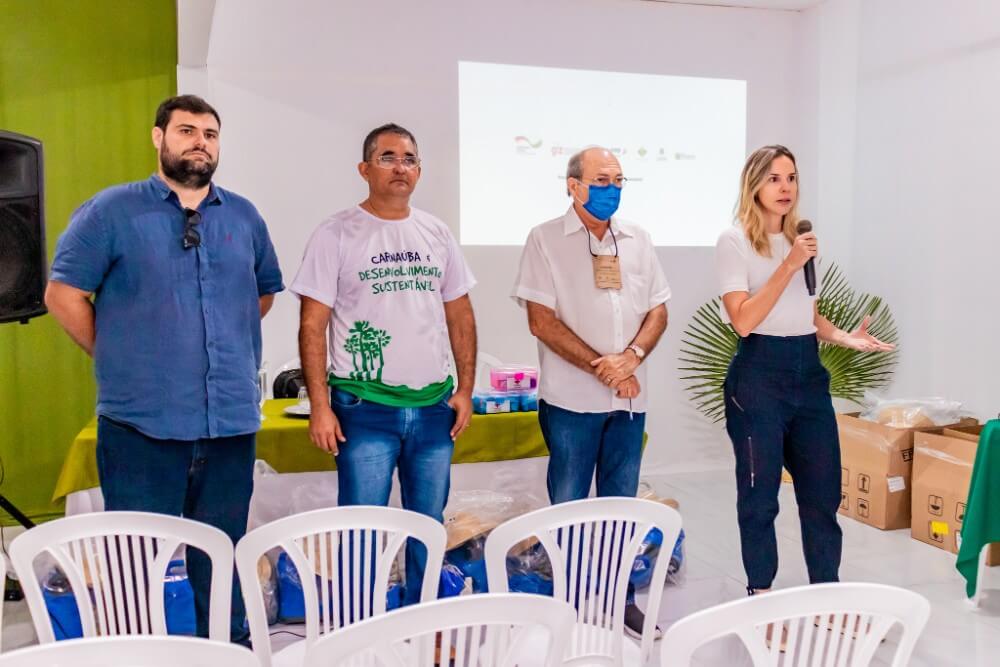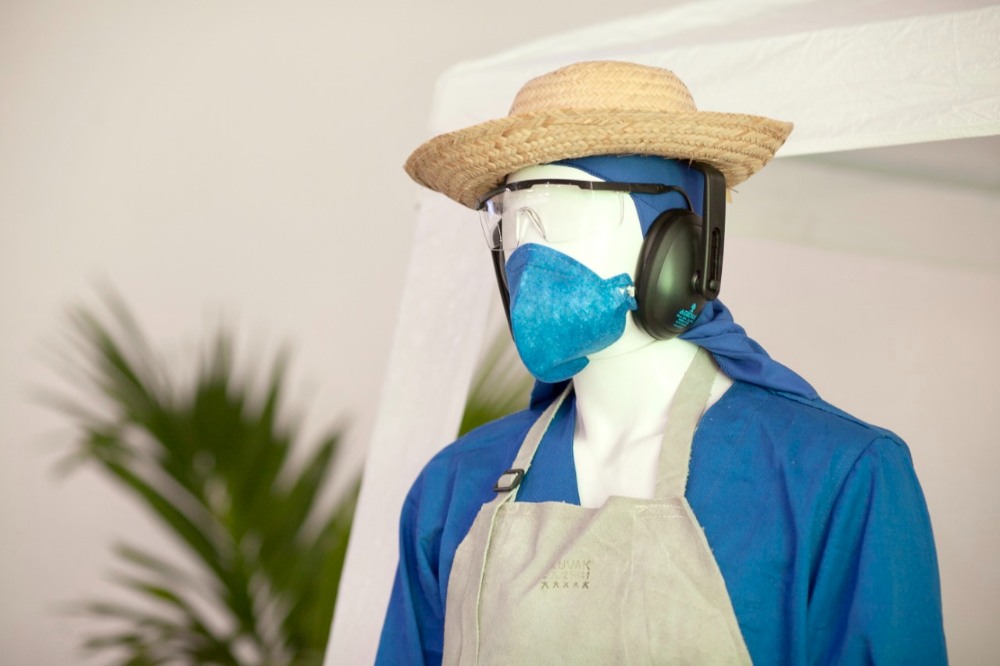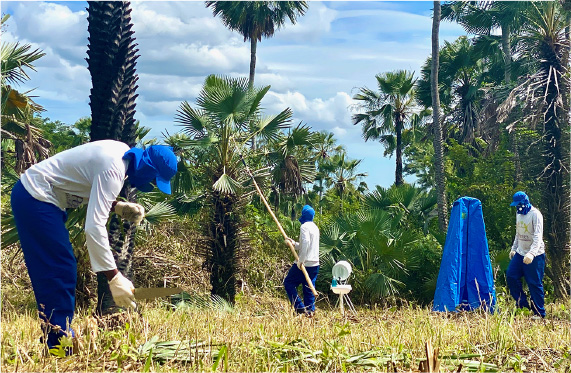
Pontes is the only company to have its own farm. Not only a farm, but a model of production. From harvest to consignment, every step of the Pontes manufacturing journey is certified as traceable and sustainable. In the carnauba’s production chain, everything is reused! All the waste is transformed in briquettes, compost or handicrafts. For this, the farm is also a model of circular economy, as nothing is wasted. The sense of respect for the planet begins locally, in the community we live. And It must go beyond the words, it must be a model, an example to be followed.
The circular economy is a systems solution framework that tackles global challenges like climate change, biodiversity loss, waste, and pollution. Ellen Macarthur Foundation.
Composting is a technique that has several environmental benefits, in addition to be a good source of income. Composting imitates what occurs in nature, but much faster, reusing the material considered waste and transforming it into an optimal organic compost, to serve as a fertilizer.

Briquette, also known as ecological charcoal, is a solid and compact biofuel that replaces various sources of energy, such as: charcoal, natural gas and firewood. In addition to be considered technologically clean, the production of energy from ecological sources contributes to the reduction of greenhouse gas (GHG) emissions, a global concern.

The chopped straws generated from the powder extraction machine are called “bagana”. It can be reused in compost and as a protective layer in agriculture.

Handicraft is a sustainable activity that generates income and still values the local heritage, the traditional regional culture. The handicraft made from carnauba straw is typical in North-eastern Brazil. Through this activity, families can supplement their income, by producing beautiful objects, even out of the carnauba’s harvest period.

By reducing the inputs and the waste, we conserve resources and help to reduce environmental pollution.
Related topics




